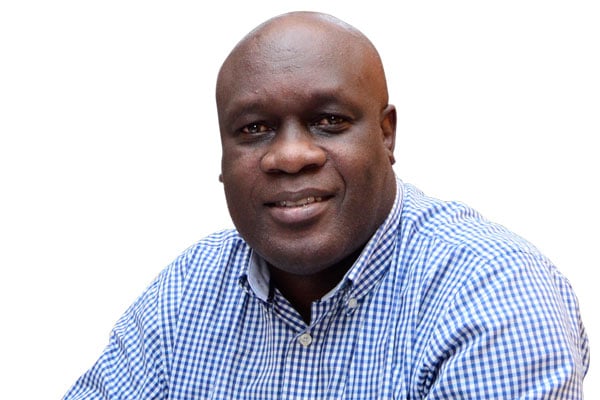Prime
Journalism continues to struggle because it lacks a broad appeal

Author: Musaazi Namiti. PHOTO/FILE
What you need to know:
- Admittedly, the internet has had adverse effects on journalism.
Last month, the Reuters Institute for the Study of Journalism at the University of Oxford published findings from a global survey that suggested that the number of people taking a strong interest in news had dropped by around a quarter in the past six years.
More than a third of people (36 percent) worldwide said they sometimes or often actively avoided news and that young people were abandoning news websites. In places such as Uganda, we often blame technology for disrupting the news industry and, by extension, journalism. Yet newspapers were already folding in big numbers even before technological advances took their toll.
Here is a very long list of newspapers (with names of individuals/organisations that started or edited them) which have folded over the years. Only the Razor was launched after the advent of social media.
Weekly Digest (Jesse Mashate); Uganda Confidential (Teddy Ssezi Cheeye); The New Mirror (Mangeni, James Onyango); The Statesman (Luke Kazinja, John Kakande); Express Post (Michael Wakabi); Business World (Kazooba); Weekly Topic/Daily Topic (Bidandi Ssali, Kintu Musoke); The People (Amos Kajoba, UPC); The Citizen (Lawrence Kiwanuka, John Kakande, DP); The Financial Times (Onegi Obel, Dan Elwana).
Others include Finance and Trade (Ssanyu Ssebbowa); Munno (Catholic Church, Anthony Ssekweyama, Tamale Mirundi). (Munno also had an English edition which folded as soon as it was launched.) Ngabo (Drake Ssekeba, Ndugwa Ssemakula); New Ngabo (Drake Ssekeba); The Star (Hellen Mukiibi, Luke Kazinja); Saba Saba (N/A*); Uganda Eyogera (N/A); Uganda Express (Chapaa Karuhanga); The Shariat (Hussein Musa Njuki, Haruna Kanaabi); Chic (Ali Balunywa, Edmond Kizito, Robert Kasozi).
The newsstands also saw the following: Chics (Edmond Kizito); Spice (Edmond Kizito, Robert Kasozi); Secrets (Apolo Kakaire, Wairagala Wakabi, Percy Muloosi); Bella (Edmond Kizito); Weekly Mirror (N/A); Focus (Mohammed Katende, founder of the defunct Uganda Journalists Safety Committee); The Tribune (Peter Bahemuka, Musinguzi Bamuturaki); The New Times (Sserwadda, Gerald M. Kiweewa); Procurement News (Mwesigwa); East African Business Week (Stephen Asiimwe).
More from the press graveyard: The Word (the Shonubis, Ronnie Mayanja); National Analyst (Apollo Kakaire, Adolf Mbaine); The Evening Post (Odoobo C. Bichachi, Edris Kiggundu, Badru Mulumba, David Kibirige); The Voice (Tamale Mirundi, former Cabinet minister Sam Kutesa, Moses Byaruhanga); The Message (N/A); The Stream (N/A); Vanguard (N/A); Volcano (Emma Masumbuko); Monitor Sport (Rashid Mudeen); Sports World (Paul Waibale Snr, Paul Waibale Jnr); Ngoma (Enock Mayanja Kiyaga).
And finally: The Crusader (Francis Onapito-Ekomoloit, Peter Mwesige, etc); Njuba Times (Ndugwa Ssemakula, Sam Sserwanga, Peter Ssematimba); The Market Place (Ernest Kakwano, Adonia Ayebare, Odrek Rwabwogo, Ofwono Opondo); Kamunye (N/A); The Razor (Emmanuel Gyezaho, Karuhanga Mwine Abangira); Kodh’eyo (N/A); Oyeng-Yeng (Okumu Langol); and Lipoota (Tamale Mirundi).
This list is not exhaustive, of course. It has mostly newspapers, but news magazines and TV stations such as WBS and Sanyu also failed. Admittedly, the internet has had adverse effects on journalism. In the UK, for example, where the reading culture is solid and incomes are high, 198 local newspapers have folded since 2005, according to the Press Gazette.
But there is a much bigger issue. The US media scholar Robert G. Picard, an expert on media economics, says that most people get little satisfaction of their needs from regular and significant news consumption. This goes without saying that they will always be reluctant to pay for news. How can we change that?
*N/A is used to denote “Not Available”.
Musaazi Namiti is a journalist and former Al Jazeera digital editor in charge of the Africa desk
[email protected] @kazbuk




